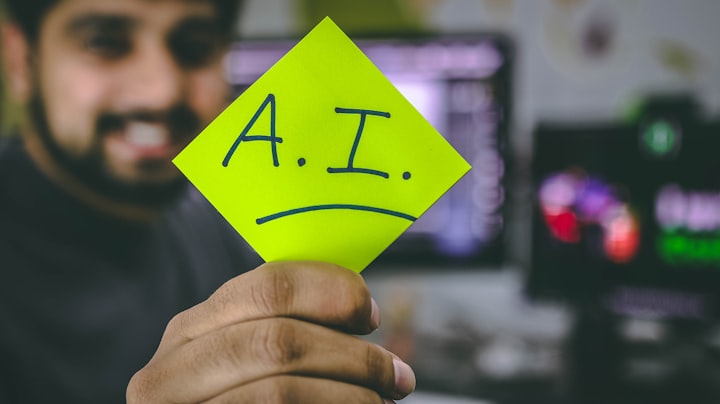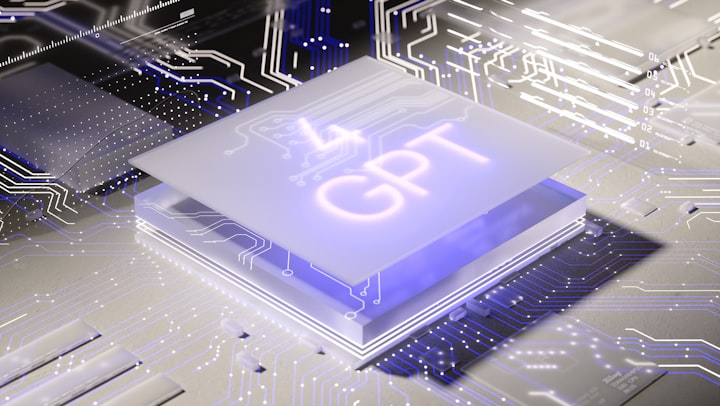AI and public job sector
How AI is taking place of humans in public job sector

Artificial intelligence (AI) has been gaining ground in various industries over the years. With the advent of machine learning and deep learning algorithms, AI has been able to perform tasks that were previously thought to be the sole responsibility of humans. As a result, there are concerns that AI may eventually replace humans in various job sectors, leading to job loss and economic disruption. In this essay, we will examine the impact of AI on the job sector, the challenges it poses, and the measures that can be taken to mitigate the risks.
One of the primary ways in which AI is replacing humans in the job sector is through automation. AI-powered machines can perform repetitive tasks that were once done by humans more efficiently and accurately. For instance, in manufacturing industries, robots can assemble parts of a product much faster than human workers. This leads to increased productivity, reduced costs, and higher profits for the company. As a result, many companies are replacing human workers with AI-powered machines.

However, the impact of AI on the job sector is not limited to just the manufacturing industry. In the service sector, AI-powered chatbots are increasingly being used to handle customer queries and complaints. This has led to job losses in customer service departments, as AI-powered chatbots can handle a higher volume of customer queries in less time. Similarly, in the financial sector, AI-powered algorithms are replacing humans in trading and portfolio management. These algorithms can analyze large volumes of financial data and make investment decisions faster and more accurately than humans.
The impact of AI on the job sector is not limited to the manufacturing, service, and financial sectors. In healthcare, AI-powered machines are being used to diagnose diseases and develop treatment plans. In transportation, self-driving cars and trucks are replacing human drivers. In the legal sector, AI-powered algorithms are being used to perform legal research and document review.

Despite the benefits of AI in the job sector, there are concerns that AI will eventually lead to job losses and economic disruption. According to a report by McKinsey & Company, up to 800 million jobs could be lost to automation by 2030. This would lead to significant economic disruption, as workers would lose their jobs and struggle to find new ones. Furthermore, the impact of AI on the job sector is likely to be uneven, with certain industries and regions being more affected than others.
One of the challenges posed by AI replacing humans in the job sector is the potential for social inequality. As AI-powered machines replace human workers, those who lose their jobs are likely to be low-skilled workers in industries such as manufacturing and customer service. These workers may find it difficult to transition to new jobs, as they lack the skills required for new, emerging industries. As a result, there is a risk of social inequality, with certain groups of people being disproportionately affected by the impact of AI on the job sector.
Another challenge posed by AI replacing humans in the job sector is the potential for economic disruption. If large numbers of people lose their jobs to automation, there is a risk of economic recession, as these workers will have less money to spend on goods and services. This could lead to a downward spiral, with companies struggling to make profits and more workers losing their jobs.
To mitigate the risks of AI replacing humans in the job sector, governments, businesses, and individuals can take several measures. One such measure is investing in education and training programs to equip workers with the skills required for new, emerging industries. This can help workers to transition to new jobs and avoid job losses. Another measure is implementing policies that encourage the development and adoption of AI in a responsible and ethical manner. This can help to ensure that the benefits of AI are maximized while minimizing the risks of job loss and social inequality.
In conclusion, AI is already replacing humans in various job sectors, and this trend is
About the Creator
Haidar- Ali
Meet Haidar, a story writer with a passion for crafting captivating tales that take readers on unforgettable journeys. Haidar developed an early love for storytelling, spending hours reading books and creating his own imaginary worlds.






Comments
There are no comments for this story
Be the first to respond and start the conversation.